Banking from your phone?
Download our app
Welcome Back
You can access your accounts here.

Banking from your phone?
Scan the code to download our app.

not featured
2024-04-11
Savings
published
Saving for Rainy Days with Money Market Accounts

-
When life sends you storms, it’s smart to have something to protect you from the rain. The same is true for financial matters. We can’t predict the ups and downs of life, but we can build a safety net to protect us during those low times. While most people set up a savings account1 and think that’s all they can do, we’re here to outline another effective way to build your rainy day fund. Let’s explore how you can use money market accounts2 to weather life’s storms.
Basics of Money Market Accounts
A money market account2 functions similarly to other savings accounts offered by banks and credit unions, but it offers higher interest rates in comparison. You can deposit as much money as you want in your account and watch as your funds earn interest. As your balance grows, your earnings also increase. Plus, thanks to compound interest, your savings grow faster over time, accelerating your overall growth.
How is a Money Market account good for a rainy day fund?
A money market account2 offers flexibility without sacrificing a high-interest rate. If you must dip into your savings due to an emergency, you won’t be penalized. While this sounds like a great fit, there are some strings attached that make money market accounts less accessible to everyone.
Advantages to Money Market Accounts
There are many reasons to love a money market account. Not only does your money grow rapidly, but you can access your funds six times a month without any fees attached. So, whether you’re saving for a specific purchase or putting money away “just in case,” you can spend your money however you see fit. At Armed Forces Bank, you can earn 4.15% Annual Percentage Yield (APY) for the first six months of your account (learn more), and you are eligible for our Saving Cents program,3 which can help your funds grow even more.
Disadvantages to Money Market Accounts
While money market accounts can be great for growing your savings, there might be better fits for some individuals. At Armed Forces Bank, you can open a money market account for only $25! However, your account needs to maintain a $1,000 minimum balance; otherwise, a service fee will be charged. If you're starting with a relatively small amount of money and are concerned about fees potentially diminishing your earned interest, a money market account may not be the right savings method for you. Unlike CDs,4 rates in money market accounts can change, meaning one month may yield more than another.
Saving for a Rainy Day with Armed Forces Bank
Not everyone has the same finances. The method that works best for one person may not be ideal for another. Plus, making the decision can be difficult if you are unfamiliar with your options, so feel free to contact a local branch or stop by. Our experts can walk you through your choices and set up something that fits your unique situation. With the perfect saving plan in place, life’s rainy days won’t feel so bad. Contact us today to get started on your savings journey.
Member FDIC
1$25 minimum opening deposit required. $100 minimum balance required to avoid $5 monthly service charge. $5 paper statement fee applies. Closing new accounts within 90 days of opening will result in a $20 closure fee.
2 Minimum $25 deposit to open the account. A monthly service charge of $10 will be imposed every month or statement period if the balance in the account falls below $1,000 on any day of the month or statement period. Six (6) transactions per statement allowed. Excessive withdrawal fee of $10 per item over 6 withdrawals per statement cycle. Free eStatements or $5 paper statement monthly fee. Closing your account within 90 days of opening will result in a $20 early closure fee.
3 Choose from $1 to $5 increment to round up on your debit card purchases from your checking account. Each night all the extra change will automatically transfer from your checking to your savings.
4 $500 minimum deposit required. A penalty may be charged for early withdrawal. CD rates are subject to change at any time and are not guaranteed until CD is opened. Fees charged to the account could reduce earnings on the account.